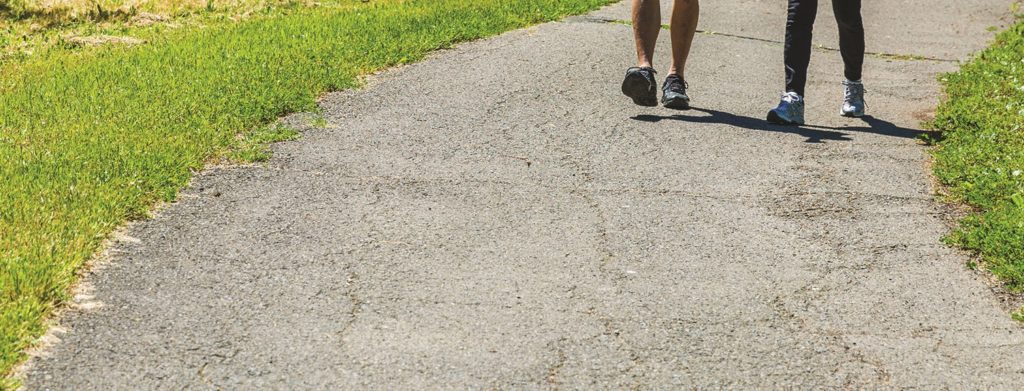Walking is the perfect exercise for nearly everyone at any stage of life.
In just a small amount of time, walking can provide numerous benefits for one’s health and overall well-being. Walking is the perfect exercise for those with limited finances and time because you can do it anywhere, essentially, and with no special equipment necessary.
Walking especially provides numerous long-term health benefits for seniors, both physically and mentally.
Physical Benefits
Here are some of the physical benefits you can expect from regular walking:
- Walking helps reduce blood pressure. As we age, our risk for high blood pressure also increases. During exercise, one’s systolic pressure increases to improve blood flow and allow for more oxygen to be made available for working muscles. During this time, the blood vessels become more relaxed, allowing for increased blood flow and the slight lowering of diastolic blood pressure.
- Regular walking provides benefits for diabetics. Studies show that walking for 30-60 minutes a day can improve glucose control for diabetics because walking helps sugar from collecting in the bloodstream.
- Walking builds strength and helps maintain balance. Walking helps individuals develop the strength to fend off ailments such as osteoporosis and arthritis, and also allows seniors to maintain strength and balance to live independently. In a 2014 article, a study of 1,600 people between 70-89 years old found that those who walked regularly were 28 percent less likely than their counterparts who don’t exercise to become disabled.
Mental Benefits
While walking can provide numerous benefits to one’s physical health, it also promotes improved mental advantages. Some of these benefits include:
- Studies show regular walking improves seniors’ memories. As reported in the British Journal of Sports Medicine, a 2008 study found a group of seniors age 70-80 with mild cognitive impairment showed improved memory after walking.
- Walking has been shown to help reduce depression, stress, and anxiety. When you walk, the brain releases endorphins, which has often been called nature’s “happy medicine”. Endorphins help to combat symptoms of depression, stress and anxiety. Meanwhile, walking also reduces certain immune system chemicals that have a negative impact on the body’s ability to handle depression. Stressed out? Walk it out!
- Are you having trouble sleeping? Walking has been shown to improve insomnia. Exercise not only physically draining, but your body temperature also rises. As the body’s temperature lowers and returns to normal, it is a signal to the body that it is time for sleep.
As you can see, walking provides numerous health benefits, both physically and mentally. Also, it is never too late to start walking (with a few exceptions, of course). It’s best to start with short distances and gradually build up. In addition, experts say that even short walks can provide many health benefits. So lace up those shoes, and start your stride!



